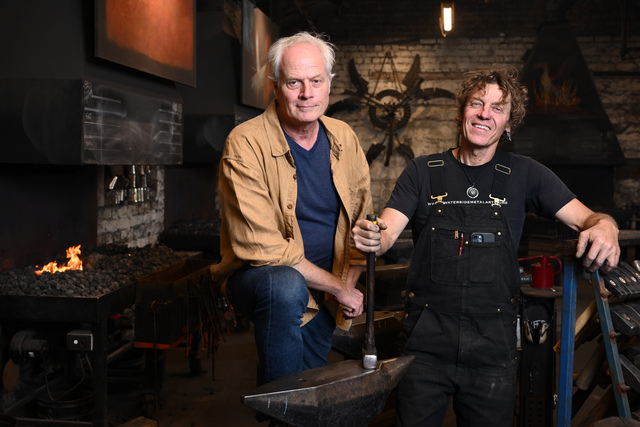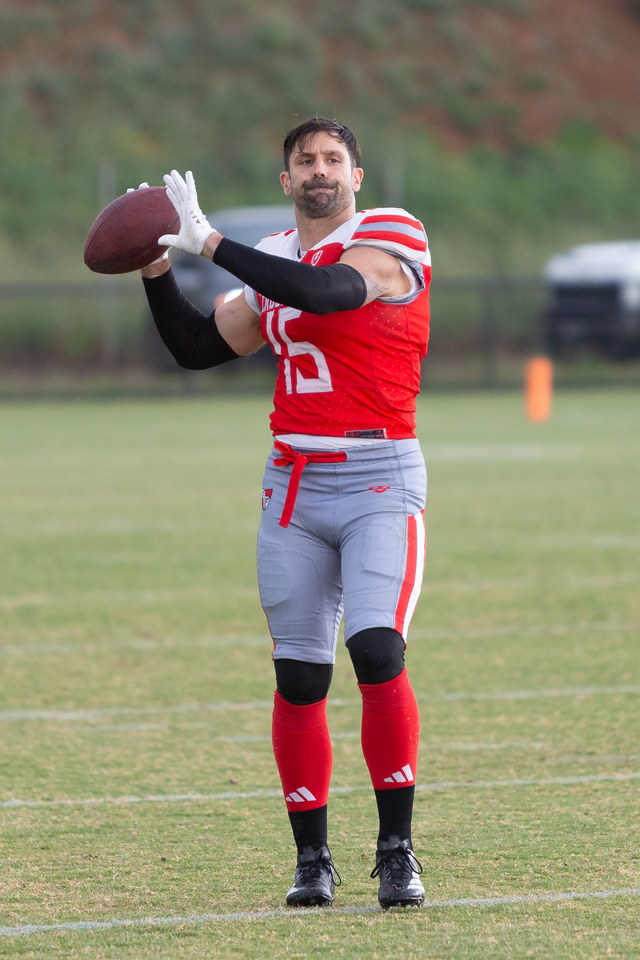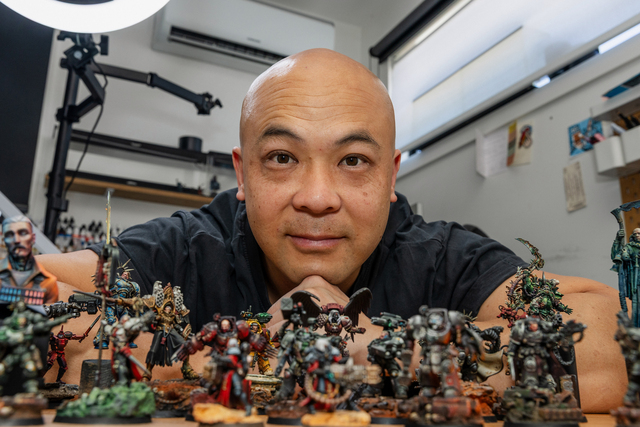Just like a blacksmith shaping hot metal, Felix Nobis has been hammering away at his rendering of Beowulf.
It’s been the project of a lifetime for the actor and academic, who first translated the Old English epic at the age of 28, and turned it into a one-man performance that toured the world.
Beowulf is regarded as the greatest poem in Old English and the beginning of the English literary canon, but there’s much contention about how old it really is – the only manuscript in existence dates to about 1000 AD.
On a smaller timescale, it’s been two decades since Nobis’ first sold-out Beowulf shows at the Edinburgh Fringe, and about five years since his last performance of the tale of heroes, monsters and dragons.
He’s recently completed re-translating some sections, making for an updated show which will be staged for the first time in a Footscray blacksmith’s workshop – one of a few remaining in the city – as part of the Melbourne Fringe Festival.
“We’re calling this production Beowulf: Reforged, because I’ve actually been tinkering with it, kind of like with a hammer, just pounding certain sections that I haven’t been quite happy with,” Nobis said.
Will there be molten metal and sparks flying as Beowulf slays his monsters? Nobis can’t say just yet, but promises it’s the ideal spot for a story all about armour and swords and helmets emblazoned with dragons.
The epic is endlessly fascinating, he explains, because it’s a portal to the past: into the medieval world and the souls of medieval humans.
These days the well-known actor mostly works as an academic, who enjoys telling his Monash University students that he’s danced with Nicole Kidman, moved into Ramsay St and even narrated the Walking with Dinosaurs arena spectacular.
Nobis is approaching his upcoming performances less as an actor, and more as a storyteller, and says his relationship to the epic has changed over the years.
Beowulf has three sections, beginning with the young warrior battling the monster Grendel, followed by the revenge of Grendel’s mother.
In the third section set 50 years later, an older Beowulf – aware of his flaws and his legacy – faces his final contest with a dragon.
“Maybe I’m not the age yet when Beowulf fights the dragon, but I feel that reflection – it’s not just about physical strength and courage, but how one has lived one’s life,” said Nobis.
Nobis lived his life – his late 20s at least – immersed in the poem, and wrote a PhD thesis on it at University College Cork in Ireland.
“It was a bit like doing a three year cryptic crossword puzzle, just thinking about the words and the rhythms and the alliteration, and I came up with this translation,” he said.
At the time, the young Australian had some serious competition.
Nobis finished his translation in 2001, but no less than the Nobel prize winner Seamus Heaney had completed his own version of the epic the year before.
The celebrated poet turned up to one of Nobis’ live performances of Beowulf in Dublin, and they ended up drinking beer together.
Heaney even wrote a short blurb for the performance, describing it as enthralling – and Nobis credits these few sentences with getting him his first sold-out slot at the Edinburgh Fringe.
Since then, Nobis has performed his Beowulf about 150 times in various productions around the world.
A recent trip to Europe included a trip to the British Library to see the Beowulf manuscript, which survived over 1000 years before being found after a house fire in London.
“Seeing the the burnt edges of it, looking at the weight of it, and just thinking how miraculous it is that document survived… it’s thrilling – for me personally, it is the deepest connection to history that I ever feel,” said Nobis.
Beowulf: Reforged runs October 2 – 12 at Waterside Forge in Footscray as part of the Melbourne Fringe Festival.
The Beowulf Manuscript: A Performed History, at the same venue, runs October 6 – 13.







